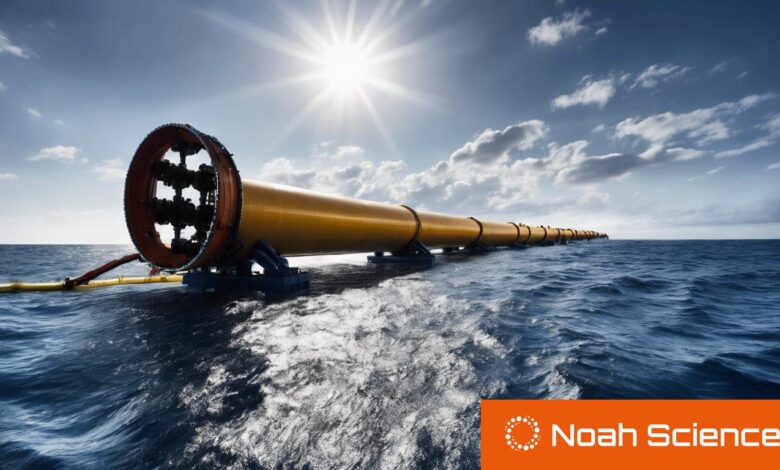Revolutionary thermal insulation technology propels offshore energy efficiency

The successful deployment of ODYSEA’s Goldilocks insulation, utilizing ExxonMobil’s Proxxima resin systems in the Gulf of Mexico, represents a major stride in subsea pipeline technology, marking a shift towards more efficient and environmentally friendly offshore energy production.
In a significant leap forward for the energy industry, the successful installation of approximately eleven kilometers of deepwater pipelines has highlighted a revolutionary advancement in offshore thermal insulation technology. This landmark project, executed in the Gulf of Mexico, utilized ODYSEA’s Goldilocks (GDLX™) insulation, powered by ExxonMobil’s Proxxima™ polyolefin thermoset resin systems, and was laid down by Subsea7, a leading name in project management, engineering, and construction services for the offshore energy sector.
The Gulf of Mexico, with its challenging deepwater environments, demands cutting-edge solutions for pipeline insulation and integrity. Traditional methods of thermal insulation have been complex, time-consuming, and not without their limitations in longevity and efficacy. However, the innovative approach taken by ODYSEA, in collaboration with ExxonMobil’s advanced resin systems, appears to set a new standard in efficiency, environmental compatibility, and operational safety.
The GDLX™ technology, described by ODYSEA’s CEO Tanmay Desai as “a game-changing technology solution,” demonstrates a substantial leap in the development of thermal insulation. Unlike conventional methods that rely on labor-intensive, multilayer processes, GDLX™ employs a unique castable and moldable insulation coating. This not only simplifies the application process but also substantially reduces waste and expedites the timeline to operational readiness – a crucial factor in the competitive and fast-paced energy sector.
The resilience and reliability of this technology were rigorously validated through comprehensive testing aligned with the International Organization for Standardization (ISO), alongside multiple tests directly involving the client. According to José Manuel Torres, SCM Technology Manager at Subsea7, the project’s success was rooted in a “collective commitment to innovation,” underscored by the exhaustive trials that guaranteed the technology’s performance under the demanding conditions typical of high-pressure, high-temperature deepwater operations.
ExxonMobil’s Proxxima™ resin system is pivotal to the functionality of GDLX™, offering a polyolefin thermoset that boasts exceptionally low viscosity for facile application, combined with a fast yet controllable curing process. Its robustness against temperature fluctuations, resistance to high pressure, and unparalleled hydrophobic properties ensuring minimal water uptake, mark it as a superior choice for subsea insulation applications. These characteristics are indispensable in the Gulf of Mexico’s challenging operational environment, where maintaining the integrity of subsea infrastructure is paramount.
This project did not only showcase a technological advancement in subsea pipeline insulation but also embodied a shift towards more sustainable and efficient methodologies in offshore energy production. The efficiency and environmental benefits of GDLX™ tandem with ExxonMobil’s resin system could serve as a benchmark for future developments in the industry, striving towards reducing the ecological footprint of offshore energy projects.
Subsea7’s and ODYSEA’s collaboration, underpinned by ExxonMobil’s technological contribution, indicates a future where deepwater energy projects can be realized with greater speed, safety, and environmental consideration. As the industry continues to evolve, such innovations will undoubtedly play a critical role in shaping the efficiency and sustainability of offshore energy production in the decades to come.








